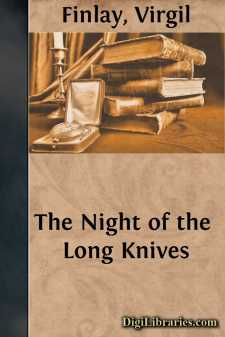Categories
- Antiques & Collectibles 13
- Architecture 36
- Art 48
- Bibles 22
- Biography & Autobiography 813
- Body, Mind & Spirit 142
- Business & Economics 28
- Children's Books 16
- Children's Fiction 13
- Computers 4
- Cooking 94
- Crafts & Hobbies 4
- Drama 346
- Education 46
- Family & Relationships 57
- Fiction 11829
- Games 19
- Gardening 17
- Health & Fitness 34
- History 1377
- House & Home 1
- Humor 147
- Juvenile Fiction 1873
- Juvenile Nonfiction 202
- Language Arts & Disciplines 88
- Law 16
- Literary Collections 686
- Literary Criticism 179
- Mathematics 13
- Medical 41
- Music 40
- Nature 179
- Non-Classifiable 1768
- Performing Arts 7
- Periodicals 1453
- Philosophy 64
- Photography 2
- Poetry 896
- Political Science 203
- Psychology 42
- Reference 154
- Religion 513
- Science 126
- Self-Help 84
- Social Science 81
- Sports & Recreation 34
- Study Aids 3
- Technology & Engineering 59
- Transportation 23
- Travel 463
- True Crime 29
The Stars, My Brothers
by: Virgil Finlay
Categories:
Description:
Excerpt
He was afraid—not of the present or the future, but of the past. He was afraid of the thing tagged Reed Kieran, that stiff blind voiceless thing wheeling its slow orbit around the Moon, companion to dead worlds and silent space.
1.
Something tiny went wrong, but no one ever knew whether it was in an electric relay or in the brain of the pilot.
The pilot was Lieutenant Charles Wandek, UNRC, home address: 1677 Anstey Avenue, Detroit. He did not survive the crash of his ferry into Wheel Five. Neither did his three passengers, a young French astrophysicist, an East Indian expert on magnetic fields, and a forty-year-old man from Philadelphia who was coming out to replace a pump technician.
Someone else who did not survive was Reed Kieran, the only man in Wheel Five itself to lose his life. Kieran, who was thirty-six years old, was an accredited scientist-employee of UNRC. Home address: 815 Elm Street, Midland Springs, Ohio.
Kieran, despite the fact that he was a confirmed bachelor, was in Wheel Five because of a woman. But the woman who had sent him there was no beautiful lost love. Her name was Gertrude Lemmiken; she was nineteen years old and overweight, with a fat, stupid face. She suffered from head-colds, and sniffed constantly in the Ohio college classroom where Kieran taught Physics Two.
One March morning, Kieran could bear it no longer. He told himself, "If she sniffs this morning, I'm through. I'll resign and join the UNRC."
Gertrude sniffed. Six months later, having finished his training for the United Nations Reconnaissance Corps, Kieran shipped out for a term of duty in UNRC Space Laboratory Number 5, known more familiarly as Wheel Five.
Wheel Five circled the Moon. There was an elaborate base on the surface of the Moon in this year 1981. There were laboratories and observatories there, too. But it had been found that the alternating fortnights of boiling heat and near-absolute-zero cold on the lunar surface could play havoc with the delicate instruments used in certain researches. Hence Wheel Five had been built and was staffed by research men who were rotated at regular eight-month intervals.
Kieran loved it, from the first. He thought that that was because of the sheer beauty of it, the gaunt, silver deaths-head of the Moon forever turning beneath, the still and solemn glory of the undimmed stars, the filamentaries stretched across the distant star-clusters like shining veils, the quietness, the peace.
But Kieran had a certain intellectual honesty, and after a while he admitted to himself that neither the beauty nor the romance of it was what made this life so attractive to him. It was the fact that he was far away from Earth. He did not even have to look at Earth, for nearly all geophysical research was taken care of by Wheels Two and Three that circled the mother planet. He was almost completely divorced from all Earth's problems and people.
Kieran liked people, but had never felt that he understood them. What seemed important to them, all the drives of ordinary day-to-day existence, had never seemed very important to him. He had felt that there must be something wrong with him, something lacking, for it seemed to him that people everywhere committed the most outlandish follies, believed in the most incredible things, were swayed by pure herd-instinct into the most harmful courses of behavior....











